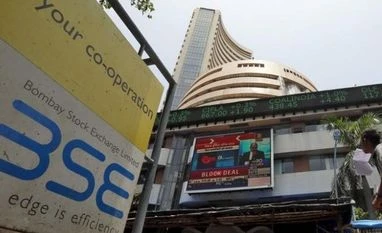This is the first time an exchange has introduced market making to infuse liquidity into stocks of listed companies. The initiative is significant as the Indian stock market is generally perceived to be shallow compared to other developed markets, and comes against the backdrop of market regulator Securities and Exchange Board of India's insistence that both BSE and NSE (National Stock Exchange) speed up the delisting of 1,200-odd companies that have been suspended for more than seven years.
Going by the exchange's March 4 circular, there were 1,389 securities in XD group, which includes companies with a market capitalisation of less than Rs 1,000 crore and fewer than 5,000 shareholders, and excludes P and Z group firms. There are a total of 5,500 companies listed on BSE.
Also Read
Market making refers to infusing liquidity by allowing market makers to act as counterparties to buy or sell shares depending on the demand. Market making also helps narrow the bid-ask spread of shares — the difference in price between the highest price that a buyer is willing to pay for an asset and the lowest price for which a seller is willing to sell.
"It is an investor-friendly move," said Mahavir Lunawat, managing director, Pantomath Capital Advisors. "Higher volumes will give investors confidence that what they are buying or selling has value." Arun Kejriwal, director, Kris Securities, says, "Market making will first have to improve volumes among existing participants and lower impact cost, only then will new investors come in."
As of now, the exchange says it has invited members to act as market makers for 400 companies, whose shares are not regularly traded and eligible. Market makers get a waiver on transaction charges for trading in these shares. There are no other incentives being provided from the exchange corpus as of now. Experts believe it may take time for market participants
| PLAYMAKERS |
| How market makers ease financial transactions? Market makers hold large volumes of a security and can fulfil a large amount of orders in the financial markets. These orders are purchases and sales and happen in a matter of seconds. Essentially, market makers are always taking the opposite side of investor trading volume. If investors are looking to sell a security, for example, market makers continue to purchase that security until all sellers are satisfied How market makers earn profits? The risk they face is a decline in the value of a security after it has been purchased from a seller and before it's sold to a buyer. So, market makers charge a spread on each security they cover |
Considering BSE's experiment with market making has worked in the derivatives segment, more incentives need to be given to market makers for this scheme to take off, say experts. The exchange reportedly spent about Rs 260 crore between September 2011 and December 2015 on liquidity enhancement schemes for the equity derivatives segment. While the incentives did help increase derivatives turnover, open interest remained little changed, which is why the exchange tapered its incentive programme last year.
)